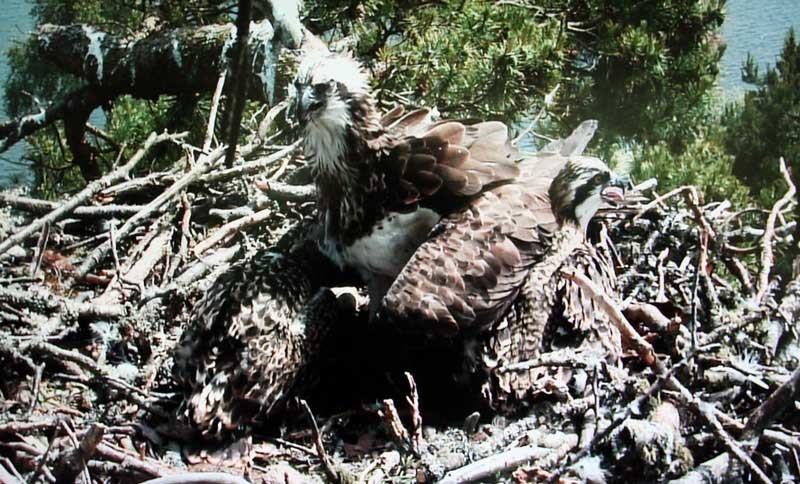Emotions ran high for staff and visitors at the Loch of the Lowes as Lady the osprey made what could be her final migratory flight.
The most famous resident of the nature reserve, near Dunkeld, is thought to have set off on the long journey to Africa on Wednesday morning.
She has not been seen near the family nest since then, which has led to speculation that the 25-year-old bird has left for the winter.
Visitor centre worker Charlotte Beskeen said, “Lady left the reserve around about this time last year, so we think it is very possible that she has now gone.
“Usually we see her in the nest about two or three times a day because she was still part of the feeding process for the chicks.
“However, we haven’t seen her since Wednesday morning, which is the longest she’s been away.”
Lady, her mate Laird and their family of chicks have gathered a massive following, with well-wishers visiting in their droves in person and online after she was struck by a mystery illness.
After observing her unresponsive and listless appearance via webcam, experts at one point gave the frail bird just hours to live.Lady’s recoveryHowever, days later she made an incredible recovery and spent the following weeks regaining her strength, thanks to the attentions of her mate.
Staff at the Loch of the Lowes kept a constant vigil to monitor Lady’s progress during this troubling time and kept fans updated online.
Despite this turnaround, there are still fears she may not return next year.
Miss Beskeen added, “We are expecting this to be her last migratory flight, although last year staff were predicting that she wouldn’t be back and she returned.
“There’s always a possibility that she could come back. We will have a long wait to find out though, as Lady doesn’t normally return to the nest until late March to mid-April.”
She added, “It will be quite sad if she doesn’t come back because she is obviously a big part of Loch of the Lowes and so many people have been following her story.”
While Lady’s whereabouts are a mystery, Laird still remains at the reserve and will spend the next three weeks ensuring the chicks are ready to face the world.
